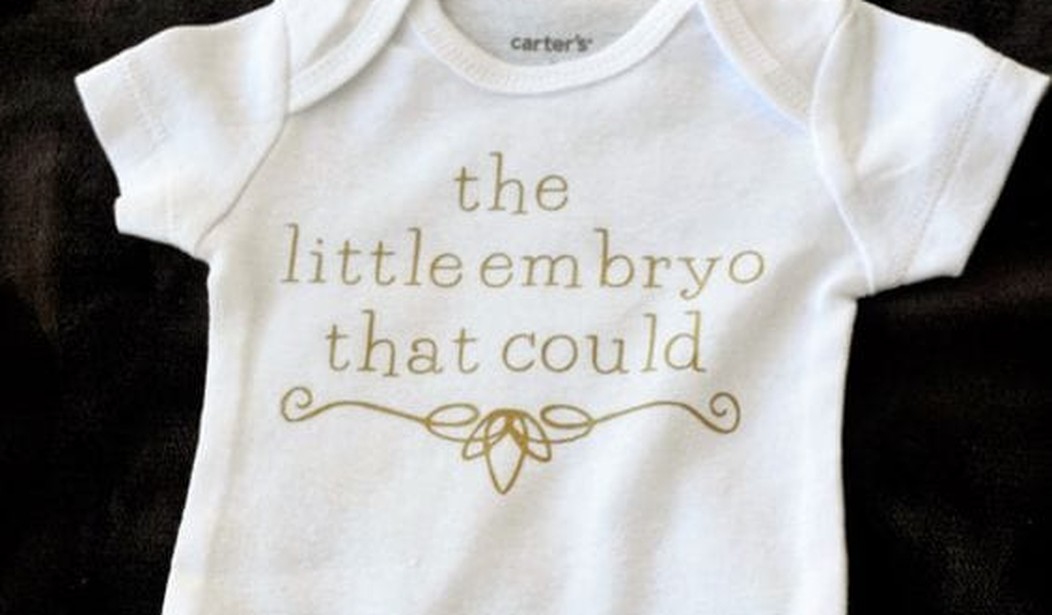For women who are staunchly pro-life, in vitro fertilization (IVF) presents a unique moral dilemma. If the medical process of IVF weren’t challenging enough, once couples are able to create viable embryos with the help of modern science, they have to decide what to do with them. Most will choose to birth one to two, perhaps even three. But what about six? Or ten? Or twelve?
Currently there are an estimated 600,000 embryos on ice in the United States. Once couples are maxed out on kids, they can choose to permanently freeze these embryos, terminate them, donate them to science or adopt them out to families who can’t have children of their own. For many pro-life IVF candidates, adoption presents its challenges.
https://www.pinterest.com/pin/440508407283227930/
As with a traditional option, you may never know where your children have ended up, or what their lives may be like. Will they be loved and cared for, or abused and forgotten? Will they ever try to find you? Will they love you or hate you? All of these concerns are compounded by the unique situation of IVF. Even if you are pro-life, you could just choose to freeze these embryos in time forever.
It has been estimated that over 7,000 children have been born via adopted embryos since the mid-1990s. Embryo adoption is the preferred choice for women who want to experience pregnancy, birth and even raising a child from infancy – something many adoptive parents don’t get the chance to do. Couples who adopt embryos also have greater control over their unborn child’s biological environment. Adoptive parents can’t control whether or not their adopted child was exposed to drugs or alcohol in the womb, or was abused after birth.
The embryo adoption process is also a lot easier than traditional adoption. According to the law, embryos are viewed simply as “property” instead of human life, making the transfer of “ownership” a great deal easier on paper.
For those considering IVF who are unsure that the process will work for them, embryo adoption is also slightly more cost-effective than the traditional IVF process. “Snowflake” embryo adoption programs charges couples up to $17,000, compared to the average cost of $20,000 for IVF.
https://www.pinterest.com/pin/329818372693287476/
Embryo adoption has a higher success rate than traditional IVF as well. Still, couples choosing embryo adoption aren’t guaranteed to actually see a living child. Through Snowflakes, all embryos are transferred from the donor family to the adoptive family. However, they don’t all survive to term. Some embryos die during the thawing process, while others don’t make it past initial implantation.
And what about the donor families? Does their commitment to their embryos end when they sign on the dotted line? In one case, a couple agreed to share pictures and letters for the first five years of their adopted twins’ lives. After that, any relationship to be had will be formed organically based on the children’s desires.
With more couples postponing children until their later years, it would appear that embryo adoption is a positive alternative for pro-life women who have undergone IVF and are concerned about the moral ramifications of managing unborn life. Still, it isn’t without its emotional challenges that deserve serious discussion within and support from the pro-life community.









Join the conversation as a VIP Member